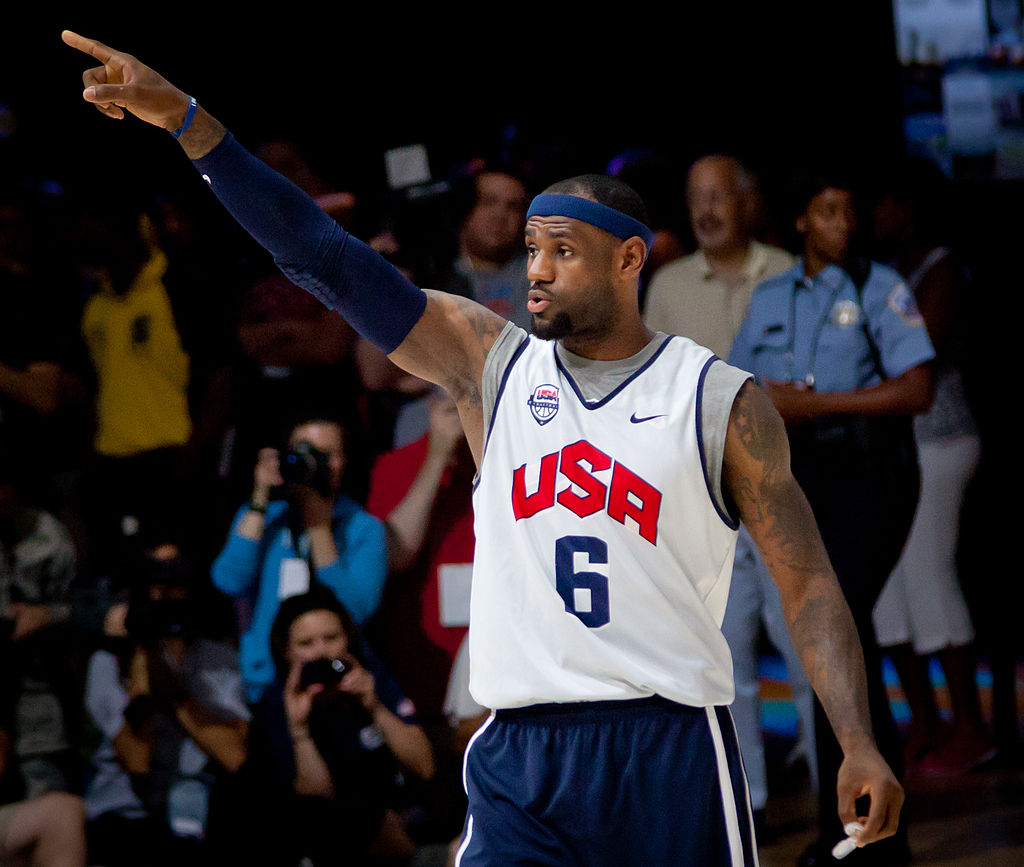Black Athletes Emerge As New Leaders of the Movement
The National Basketball Association, Major League Baseball, National Hockey League, Women’s National Basketball Association, and the National Football League All Took Action

When we look back upon 2020, it will undoubtedly be recognized as a time of unique significance. Everybody can sense it now. The tension is in the air we breathe, in every journey outside the confines of our homes, and in every dollar we spend. We are constantly confronted with the overwhelming feeling that what we do today, in this moment, will have a ripple effect into the future.
Black folks in America know from the experience of our ancestors that the time for change is always the present. That the systems and institutions that have facilitated racial inequality and white supremacy in this country over the past 400 years will not change on their own.That those systems and institutions are working today exactly as they were intended to work when they were first instituted centuries ago.
In this moment, we are seeing new leaders emerge and black athletes are at the forefront. It is a path that they would likely have never chosen for themselves, but the platform and visibility that their athletic gifts have created have necessitated that they take a stand.
On Aug 26 2020, four years to the day after Colin Kaepernick refused to stand for the national anthem in protest over police brutality, National Basketball Association players, sparked by the recent police shooting of Jacob Blake, refused to take the court to protest the killings of black men and women at the hands of police. Their protest was adopted by individual athletes,such as Naomi Osaka and teams in Major League Baseball, National Hockey League, Women’s National Basketball Association and the National Football League.
LeBron James, a poor kid, born to a single teenage mother in Akron, Ohio, who moved from home to home as a child, grew up to become the greatest basketball player of his generation and a powerful voice for social justice. He escaped extreme poverty and neighborhood violence without a criminal record, and was able to pursue his dream of being “like” Michael Jordan. The only difference is that, it seems, Jordan wanted no part of any social justice movement.
One of his most famous and impactful quotes came in 1990 when he said “Republicans buy sneakers, too.” when answering a question about the U.S. senate race between Jesse Helms, a conservative who used nakedly racist campaign tactics and his black opponent Harvey B. Gantt. A statement that Jordan has never really backed away from.
The easy path would be for athletes to put all of their time, energy and effort into their craft and maximize their earning potential by not alienating any segment of American society. Jordan created a blueprint for this approach, and has reaped the benefits. But this is 2020 and for this generation of athletes enough is enough. This extends well beyond police shootings. It is about the targeted harassment, unnecessary criminalization, physical and emotional trauma that black people in America experience countless times every day.
Sports have always had the power to be a unifying force in American society. Even at the youth level, children of every race, socioeconomic status and background learn to work together toward a common goal and see beyond their differences. I’ve witnessed it myself and, in the best case scenarios, I’ve seen brotherhoods and sisterhoods formed where it would otherwise be impossible. That is also a part of The America We Know.
When these athletes speak up it’s not to create division or to sow discord. It is because they are haunted by their convictions and are left with no choice but to leverage their platform into creating meaningful change. No doubt the lived experience of the black athletes make the repeated videos of black people being shot by police all the more horrific and devastating. When you are overwhelmed with pain and living in a society that has, in many ways, rejected empathy, extreme measures must be taken.
For those who oppose the movement for social justice and equality, professional athletes are an easy target. “Stick to sports” is a popular sentiment on social media and right-leaning news organizations. The cruel irony in that statement is that black athletes and black people everywhere in America would love nothing more than to live in a world where we could stick to sports or whatever our passions may be. However, our collective conscience has been stirred to action by the blood of black men and women in the streets and by the lack of accountability from our police, something we see over and over.
When Kaepernick began his protest four years ago no one could have envisioned that the entire sports world would eventually follow his lead. He was ostracized even by some so-called progressives and was eventually black balled out of the NFL. No one would have ever guessed that because of him, athletes would join, and in some ways, supplant church leaders and politicians at the forefront of social justice.
We can only imagine how what we do now will ripple into the future.



